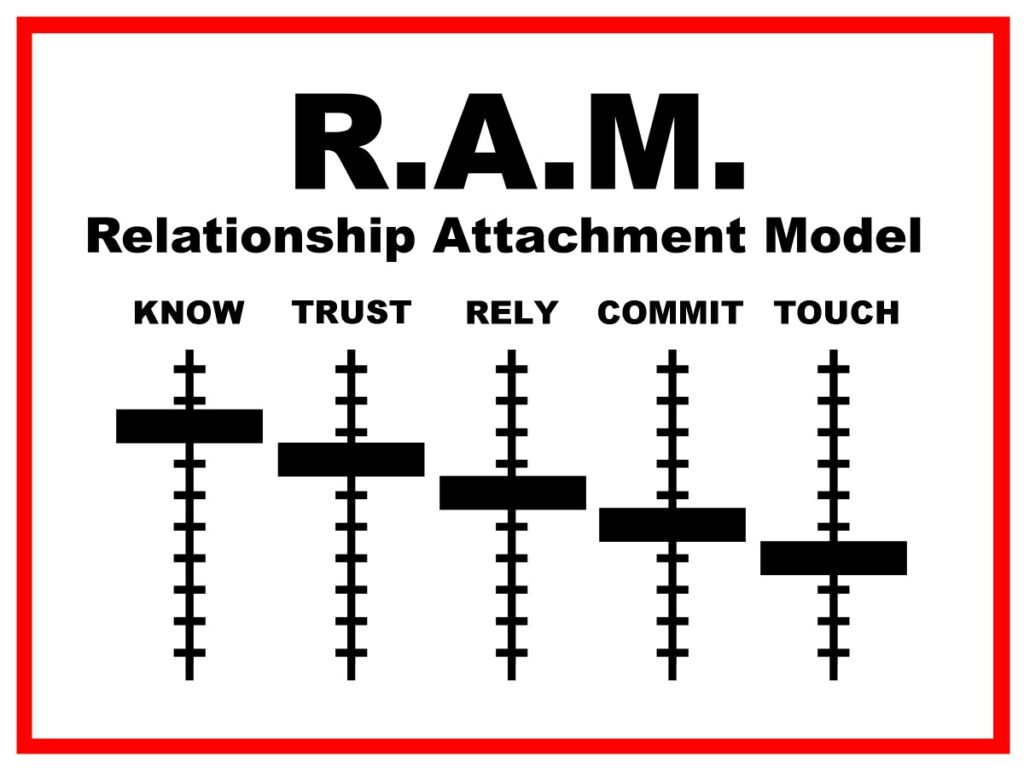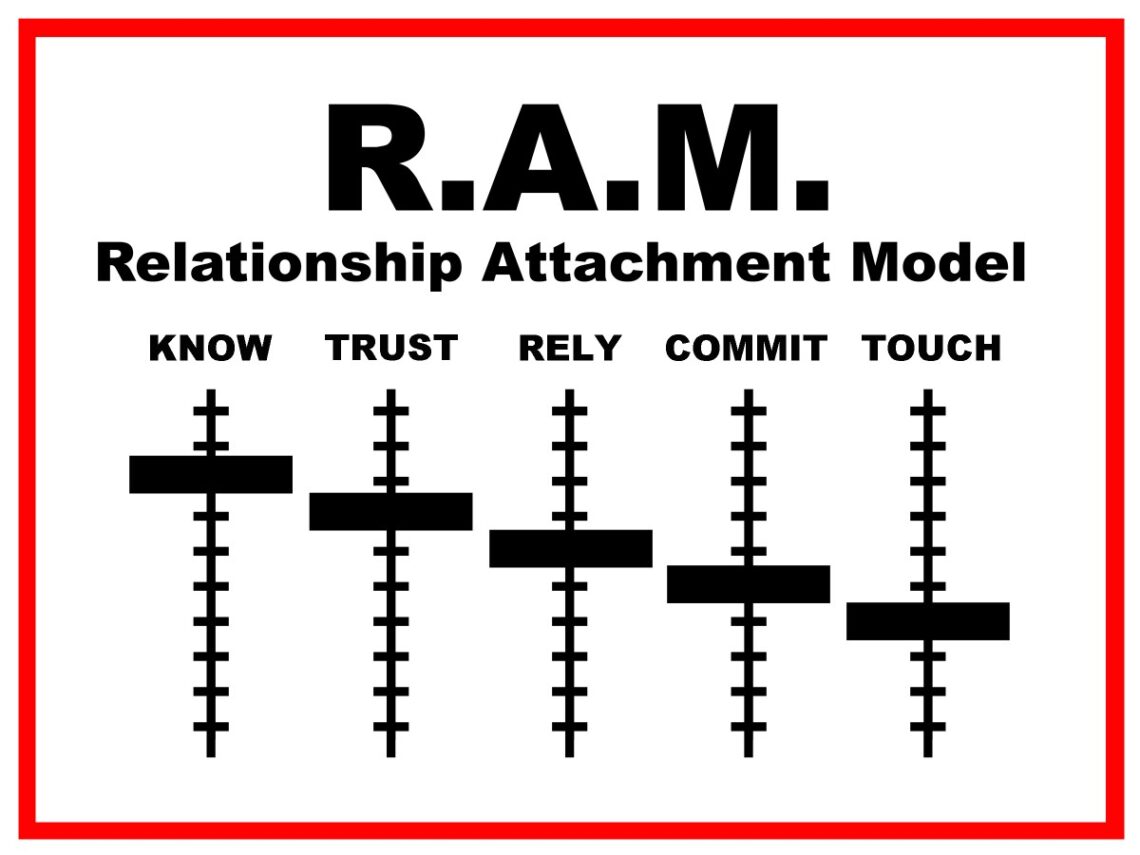Many single people ask themselves: How do I avoid falling in love with a jerk? or how do I pick a good partner to marry?
The answer is to take your dating REALLY slow. Take a lot of time with a partner. Don’t assume anything about them. A lot of times, when people like someone, they will just assume that they have all the qualities they are looking for. That is a fast track to falling in love with a jerk! Instead, take things really slow and carefully evaluate every aspect of a potential partner. Also, you need to pace the sexual part of your relationship so that it doesn’t get ahead of the other parts of your relationship – like developing a friendship and good communication skills.
Dr. Van Epp wrote a whole book about this topic. “How to avoid Falling in Love with a Jerk” is touted to be a single’s guide to finding a good marriage partner. In this summary, I will go over all of the main points from the book.

What is a Jerk?
We all act like jerks sometimes. But Dr. Van Epp defines a real jerk as someone who 1) has a habit for breaking boundaries, 2) has an inability to see things from anyone else’s perspective, and 3) has a dangerous lack of emotional controls and balance (either overreactive or emotionally flat and unexpressive.) Jerks can be both male or female. And their jerk qualities usually don’t surface until a few months into the relationship. The most common way to get involved with a jerk is to accelerate the pace of your relationship.
The Three Month Rule: It takes about three months for patterns to emerge.
Even if you spend every waking moment with your new love, it still takes about three months for any relationship patterns to emerge. So Dr. Van Epp recommends that you don’t make any commitments and don’t let your partner meet your kids until after three months of dating.
Keep your relationship formation healthy by following the RAM Model
When we fall in love, sometimes we lose our minds. We overlook serious red flags, thinking that our new partner is PERFECT. Dr. Van Epp developed the RAM (Relationship Attachment Model) to 1)help clarify the mysterious concept of love, and 2) teach people how to evaluate their relationships and keep them healthy! Here is how the RAM model works:

Each section has a slider like on a sound system equalizer. The bottom is low, the top is high. When you look at the concept of love with the RAM model, you will see that there are 5 different aspects of love: how much you know a partner, how much you trust them, how much you rely on them to meet your needs, how much you commit to them, and how much you touch them/or have a sexual relationship. In order to keep your relationship safe, you need to have all of the knobs on the right lower than the preceding knobs on the left (like the picture above). So, you shouldn’t trust your partner any more than you know them. You shouldn’t rely on them for things any more than you trust them. You shouldn’t commit to your partner any more than you rely on them, and trust them and know them. And you definitely shouldn’t touch them any more than you are committed to them. Make sense?
An unhealthy or unsafe relationship is where these knobs are not in balance. Maybe the “touch” knob is really high but the “know” knob is low. This is risky because you are becoming sexually involved with someone you don’t know well. Dr. Van Epp says that this is a recipe for getting involved with a jerk. Having sex without knowing a person really well and having a permanent commitment is unhealthy because you are at risk for “creating a false sense of intimacy, minimizing and overlooking warning signs, and staying in a bad relationship too long” (p. 84).
Another example of an unhealthy or risky relationship is where you are high on the “touch” knob, but low on the “commitment” knob. This is again unhealthy or risky because the lack of commitment means that your partner could leave you at any time.
The RAM can help you evaluate your current relationships. It can also help you when you are starting a new relationship with someone.
Why do I keep falling for jerks?
Good people often fall for jerks because good people give too much, accept too much, and overlook too much in a relationship. Instead of assuming the best while you are dating, be cautious and be like a detective looking for evidence that what your partner says is actually the truth.
Dr. Van Epp gives a list of questions that you can ask yourself about your potential partner that can help you evaluate them. I will put these questions at the end of this summary.
Relationship Scripts: Watch how your partner treats people they don’t like
Relationship scripts are the patterns that people use for their relationships. Your partner will have three different scripts: one for dealing with peripheral others (strangers/acquaintances), one for dealing with meaningful others (friends and family), and one for dealing with romantic others. Carefully watch how your partner treats all three different groups. If he/she treats you really well but it rude to strangers, be wary! The relationship scripts for strangers will eventually be used on you. Again, look for how your partner treats friends and family, because eventually those same relationship patterns will be used on you too.
Every relationship goes through ups and downs. When you get to the point where your partner gets annoyed with you, how will they act? They will probably act the same way they do with other people that annoy them right now. So watch carefully how they treat people that annoy them. How will your partner act when they hate you or seriously resent you? Well, look at how they act towards people they don’t like right now.
How to have Great Sex
Dr. Van Epp suggests that you don’t have sex with a partner until you have a VERY permanent commitment. He recommends that you wait until you are married to have sex. That may seem old school, but research does support waiting to have sex until you are married.
Out of all the research on cohabitation and marriage outcomes, it is pretty clear that cohabitation is not a good “practice” for marriage. People that cohabit with more than one person before getting married have the same chance of divorce as second marriages: 60%. This means that if you only cohabit with one person and then you marry that person, your chances are normal. But if you cohabit with more than the one person before you marry, then your chances of divorce increase. So be EXTREMELY careful about who you cohabit with. Living with someone is as if you are marrying that person. Cohabitation is like being married. When you break up a cohabiting relationship, it is like you are practicing getting divorced.
Sexual involvement before you get to know a person REALLY well, trust them, rely on the them, and are committed to them is risky. You are at risk for “creating a false sense of intimacy, minimizing and overlooking warning signs, and staying in a bad relationship too long” (p. 84).
Testing out your sexual restraint
Everyone needs sexual restraint in marriage (so that you don’t have affairs with other people) so it’s a good idea to test out this area of restraint in yourself and your partner during dating. Can they handle NOT having sex with you?
If you have already had sex with someone and you want to back off and develop the other areas of your relationship, how do you do it? Dr. Van Epp gives an example of what you could say.
You could say this: “I think you and I have something really good going on in our relationship, and I was wondering if you feel the same.”
If the answer is yes, you would then say: “I am thinking about seeing only you and trying to build a stronger relationship.”
Again if there is agreement to be exclusive, you would continue: “This may sound strange, but I would like to back off on our sexual relationship and concentrate on our friendship. There is so much to get to know about each other, and I think we could build a better foundation for our relationship if we just slow down, do more together, and deepen our trust and closeness. I know we could possibly do both, but I think we need to have our eyes wide open and sex tends to shut mine (p.84-85).”
Then you can see how they react. If they are adamant about wanting to have sex while dating…maybe you should think about what that says about them. Will they be able to control their sexual urges when they see someone else more attractive than you? Will they be able to be faithful to you? If being faithful and loyal is something important to you, then I would definitely test out whether your partner can handle NOT having sex with you.
My evaluation of the book
I really like the RAM model. It is a visual way to represent the complex idea of love and how it is formed in a relationship. I think the RAM model is useful in helping individuals pace their relationship, slow down, and think rationally about love. I also really like the thorough list of questions Dr. Van Epp gives for getting to know your partner.
My only criticism of this book is that sometimes I felt like Dr. Van Epp’s book encourages people to NEVER marry because they can never find someone who is good enough. What I have learned in marriage is that you should find a good person striving to do what’s right and then with the right skills and outlook, you will be able to create a happy marriage together. When I was dating, I felt like choosing the right person was the crucially important part. Like if I married “the wrong person”, I would be miserable and if I married “the right person”, I would be happy. But now I feel like it is all up to me. I choose to be happy. I can choose to create a good relationship with my husband or a bad one. It doesn’t really matter WHO the person is (for the most part), it matters how you treat them and how you grow together.

Questions you need to ask yourself when getting to know a potential partner:
Dr. Van Epp advises that you ask yourself these questions when trying to decide whether to marry someone. He goes into a lot of depth into each area of the relationship. The questions in italics are the additional questions that I have added to Dr. Van Epp’s list.
Chemistry: (p. 82)
- How strong is your attraction?
- How enduring has your attraction been?
- What do you like about your partner’s body?
- What are the turnoffs about this partner? Can you live with them?
- How attracted does your partner feel towards you?
- Where is the chemistry the strongest, and where is it the weakest?
- Are you attracted to the whole package or just a part?
Complementarity: (p. 92)
- How are you and your partner different?
- How do your differences benefit you? Your partner?
- Does your partner appreciate these differences?
- Do you like the ways that your partner is different from you?
- Do your differences most often complement or collide?
- What things upset you about this partner?
- How often do you become locked in a power struggle?
- Do you feel criticized or put down by your partner?
- What do you respect about this partner?
- What do you not respect about your partner?
Comparability: (p. 102)
- How does your partner’s personality compare with yours?
- How do your thinking styles and intelligence levels compare?
- How do each of you handle emotions?
- What is your energy levels like?
- Do you share a similar sense of humor?
- Do you and your partner share similar spiritual outlooks on life?
- What are your partner’s family values?
- How good at nurturing are you?
- How do you handle your money?
- How do you take care of your possessions?
- How many things do you like to do together?
- What are your work habits like?
Feelings and Understanding (p. 118)
- Are your feelings congruent with your words?
- How much insight into your own thoughts and motives do you have?
- Are you able to put my perspective and feelings into words accurately?
- Are you able to put your own feelings into words?
- Do you respect my perspective?
- How do you show me respect?
- How do you handle me when I am emotional?
Talking and Listening (p. 122)
- How much do you like to talk?
- When I tell you my ideas, do I feel validated by you?
- Do you listen to me? How do you listen to me?
- How much do you self-disclose about your day and life?
- How detail-oriented are you?
- How do you show you value my opinion?
- Can we talk like best friends?
Resolving Conflict (p. 124)
- How argumentative or defensive are you?
- Can you put your love into words?
- Do you withdraw very often? When?
- Do you attack or blame very often?
- Are you passive-aggressive?
- What are your weakest skills?
- How often do you say you’re sorry?
- Are you good at reconciling and making up?
- Do you initiate conversations? Apologies? Affection?
Treatment of Strangers (p. 138)
- Do you treat others in any hurtful ways?
- What are the patterns found in your other relationships?
- How do you act toward people you don’t know but are angry with?
- How do you treat service people – restaurant servers, cashiers, attendants, and so on?
- What is similar and different between the ways you treat those you don’t know and those who are closest to you?
- How do you show compassion to those who are struggling?
Treatment of Friends (p. 147)
- How do you treat your friends?
- How do your friends treat you?
- Do you like your partner’s friends?
- How are you similar and different to your friends?
- How important are your friendships?
- What do you do with your friends?
(Story time about Sage Allen: one time I dated a guy and I did not get along with his friends AT ALL. His friends didn’t like me and I didn’t like them. This should have been a HUGE red flag because we basically associate with people who are similar to us in values, attitudes, personality, status and lifestyle (see p. 149).
Treatment of Past Romantic Partners (p. 152)
- What did your previous partners like and dislike about you?
- What did you like or dislike about them?
- What do you wish you had done differently?
- How do you describe your previous partners?
- How did you fight with previous partners?
- How long were your relationships?
- How did your relationship(s) break up?
- What is your relationship now with the previous partner(s)?
- What did you like to do in the previous relationship(s)?
- How were arguments resolved?
- What did you argue about?
Family Affection (p. 168)
- What was the mood or atmosphere in the home?
- How was affection shown?
- What made you feel special in the family?
- Who were you close to in your family?
- How did you know that you were loved by your mother (or female caregiver)? Your father (or male caregiver)?
- How were conflicts handled by your parents (or caregivers)?
- What did you do when you were angry at your mother? At your father? At your siblings?
- How did your mother and father handle their anger?
- Were your parents happy in their marriage or unhappy and disconnected?
- How could you tell that they were unhappy or happy?
- Did your parents show affection for each other? How?
Family Structures (p. 177)
- Were your parents divorced?
- If so, how old were you? What was the divorce and the postdivorce adjustment like?
- What was your mother (or female caregiver) like as a wife? Your father (or male caregiver) as a husband?
- What was your relationship with your mother? With your father?
- Who handled the discipline?
- How were the finances handled in the family?
- Were there any addictions in the family?
- What responsibilities did you have in the family?
- What things were shared among family members?
- Who was considered “family”?
- What household chores did your father and mother each do?
- What did it mean to be the mother of the house? What did it mean to be the father of the house?
- What were the rules of your house? What were the unspoken rules of your house?
The Monitoring Conscience (p. 196)
- How consistent are your attitudes and behaviors with what you say you believe?
- What rights and wrongs do you feel strongly about?
- How do you handle it when you are wrong?
- How defensive are you?
- What common defenses do you use?
- What makes you feel guilty at times?
- Do you tend to repeat the behaviors, attitudes, and reactions that you previously felt guilty about?
- Who do you feel accountable to?
- How do you react to authority figures?
The Transporting Conscience (p. 206)
- Do you understand my perspective?
- Do you validate my perspective when I explain myself to you?
- Can you understand and even anticipate how I feel sometimes?
- How do you respond to my explanation of my view and my feelings?
- What special things do you do for me?
- How often do you initiate activities or conversations that are about me or are something that I like?
- How often do you put yourself second and me first?
- How controlling are you?
- How much attention do you give to my spoken needs?
- What are your moods like? How stable or unstable are they?
- What are your coping mechanisms?
- What do you do when you feel stressed? Angry? Upset?
Be sure to think about these questions carefully. Discuss them with your partner. And I would recommend discussing them with a therapist. Don’t trust what your partner says, trust what they do. Many partners can give you the answers they think you want to hear, but still be jerks.




No Comments